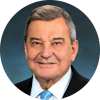Obviously the topic of research is on the minds of many DCs these days, particularly with the FCER's recent announcement that it would "self-liquidate".
During one of my memorable conversations with Joe Keating, he said: "What is needed in chiropractic, in my opinion, is less certainty that 'it works' (whatever that means) and more curiosity and skepticism about what works for which patients under what circumstances. Less rah-rah and more data collection, less rhetoric about 'the chiropractic principle,' and more critical review of the chiropractic literature." Most of us who had the pleasure of discussing research with Dr. Keating almost always walked away with the feeling that research was critically important to the very foundation of our professional advancement.
John Weeks, editor/publisher of The Integrator Blog, recently did an excellent interview and article on Josephine Briggs, MD, who heads up the National Center for Complementary and Alternative Medicine (NCCAM). Part of the interview discussed guidelines relative to spinal manipulation. I must confess I was concerned about how these research projects often take on an unexpected life of their own. I suggested to John that chiropractic, naturopathy and some of the other CAM professions need to be aware of critical issues that could negatively impact all the professions.
My lament for some time now (a point sometimes overlooked by honest researchers), is that doctors of chiropractic and other holistic physicians treat the patient. They do not just manipulate the back or prescribe herbs or nutrition, and that is why limited research projects studying only one intervention are often not appropriate. For the most part, guidelines and nearly all research projects address a single modality approach.
My experience as a clinician tells me that private practice never works like that. One cannot separate the spine from the patient, nor the doctor from the treatment provided. Healing or helping a patient to heal is a process and an interaction - not a single intervention. As long as the allopathic research agenda takes this erroneous approach and researchers do not recognize it as flawed, we will never get legitimate, complete or satisfactory answers to our questions about what is effective (and ineffective) for managing our patients' conditions.
(By the way, one researcher who did take a different approach - despite some criticism - was T.W. Meade. In the Meade Study, the researchers did not care as much about a specific intervention; they considered the entire approach, either hospital care or office care, and measured outcomes and satisfaction.)
It is encouraging that Dr. Briggs seems to be looking at all of these issues and not simply discarding them because the "establishment" does not agree. As she states on the NCCAM Web site ("The Research Puzzle," March 1, 2010), "I do not lament a study that does not prove efficacy, as finding out what doesn't work can be as important as finding out what does. Our research has helped inform the public, has had an impact on patterns of use, and helped Americans make informed health decisions. Each study is a piece of the larger research puzzle. In all fields of science and medicine, the scientific process takes time; cures are elusive. Over time, the puzzle will fill in and our understanding of the role of natural products in promoting health will become clearer."
So, with all the talk about research, where research is going, what kind of research is needed and who will be around to help provide funding, it is encouraging to note that several things are happening. First, there is a general high level of awareness among many researchers that the "drug model" is probably not what is needed when researching chiropractic care in its entirety. Second, the profession has responded to the recent appeal to help fund NCMIC Foundation, which will allow future research to be funded from investment income. This will assure a continual stream of research innovation into the next century.
I recognize there is a huge variation in the understanding of what constitutes research. The goal of the NCMIC Foundation is to support first-rate, defensible, highly scrutinized, carefully designed and meticulously-monitored research projects that not only will and can withstand the critical eyes of our detractors, but will be credible in the eyes of the public and enthusiastically embraced by the profession.
So, I guess our future in research can best be summed up by this quote from the late Italian physicist Enrico Fermi: "There are two possible outcomes. If the result confirms the hypothesis, then you have made a discovery. If the result is contrary to the hypothesis, then you have made a discovery." Research yet to be undertaken in chiropractic is still on the drawing board. What we can do is create the fertile environment and the funding mechanism for new discoveries to be made.
Click here for previous articles by Louis Sportelli, DC.





